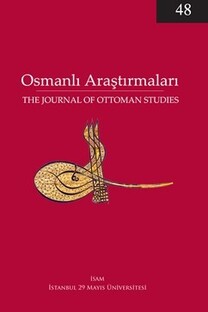Creating an ideal self: Representations of infidels in the late medieval Anatolian frontier narratives
Anadolu’nun Müslümanlarca fethi sürecindeki dini kahramanlara ilişkin büyük kahramanlık anlatıları, geç dönem ortaçağda Küçük Asya’da var olan sınır toplumunun dünya görüşlerini ve ideolojilerini yansıtan tanınmış kaynaklar olagelmiştir. Bu makale Battalnâme, Danişmendnâme ve Saltuknâme gibi destanlarda Frenk, Rum ve Yunan gibi çeşitli kategoriler bağlamında “öteki”nin temsilini ele almaktadır. Makale, bu grupların temsilinin, yiğitlik, adalet, cömertlik, cesaret ve öz-disiplin gibi sınır topluluklarına özgü idealleri tersine çevirerek esas itibariyle negatif bir öz-imaj (self-image) işlevi gördüğünü iddia etmektedir. Bir taraftan gayrimüslim müttefikleri ihtidaya davet ederken, diğer taraftan gaza ideolojisini teşvik etmenin bir aracı olarak, kafirin, kahramanın “silah arkadaşı” haline gelmesi meselesine bilhassa dikkat çekmektedir.
İdeal bir benlik yaratmak: Geç Dönem Ortaçağda Anadolu uç anlatılarında kafir temsilleri
The grand epic narratives of the religious heroes of the Muslim conquest of Anatolia have been well-known repositories of the world views and ideologies of the frontier society of late medieval Asia Minor. This article investigates the representation of the “other” of various categories, such as Frenk, Rum, and Yunan, in epics such as the Battalnâme, the Danişmendnâme, and the Saltuknâme, arguing that the representation of these groups primarily functions as a negative self-image, as an inversion of the ideals of the frontier communities, such as chivalry, justice, generosity, courage, and self-discipline. It draws special attention to the “companion figure” of the hero as a tool to promote gaza ideology while inviting conversion of non-Muslim allies.
___
- ISSN: 0255-0636
- Yayın Aralığı: 3
- Başlangıç: 1980
- Yayıncı: TDV İslâm Araştırmaları Merkezi
